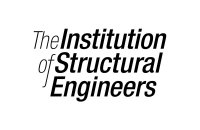Highway authorities have a legal duty to manage their road network so as to ensure the expeditious and safe movement of vehicular and pedestrian traffic. At the same time the utility companies have a right to place and maintain their apparatus within the highway.
NRSWA requires authorities to coordinate their own works, and those of the utilities carried out on their streets. The Act also requires utilities to cooperate in that process.
The TMA imposes a network management duty on authorities to manage their networks to keep traffic moving. This duty includes the coordination of activities. It requires cooperation across the authority and with other affected authorities.
This course examines the relevant aspects of the legislation and associated regulations, NRSWA codes of practice and general guidance.
Aims & Objectives:
To increase awareness of the legal requirements of the legislation and understanding of the associated regulations and codes of practice.
On completion of the course delegates will:
- Understand the legal requirements of the New Roads and Street Works Act
- Understand the legal requirements of the Traffic Management Act as they affect Street Works activities
- Understand the other relevant legal requirements
- Understand the need for the co-ordination of works
- Be aware of the notice procedure
- Be aware of the permit system
- Be aware of the guidance given in Codes of Practice and other documents
- Understand the need for the safe implementation of works
- Understand the principles of the inspection system
- Be aware of the principles of diversionary works
- Be aware of powers of enforcement
- Objective 2
Course Outline:
Legal
- The New Roads and Street Works Act 1991
- The Traffic Management Act 2004
- The Street Works various regulations
- Codes of Practice
Notices and co-ordination
- Notice procedure
- Permits
- Co-ordination - the Code
- Records
- Special situations
Execution of Works
- Managing the network
- Signing and Guarding
- Qualifications of Supervisors and Operatives
- Excavation and Reinstatement
- The Specification
- Performance requirements
Inspections
- The Code
- Types of Inspection
- Reports
- Notifications
- Inadequacies in Signing Lighting and Guarding
- Financial arrangements
Diversionary Works
- Principles
- Procedure
- Financial arrangements
Enforcement
- Offences
- Tutor presentation supported by comprehensive course notes
- Illustrations from experience with discussion encouraged
- Individual exercises
- Handouts to illustrate particular issues
- Final Assessment by multi-choice questions
Greater awareness of the requirements of the New Roads and Street Works Act 1991 and the subsequent impact of the Traffic Management Act 2004
Intended For:
This online course is intended for those who are involved with the day-to-day aspects of NRSWA and associated Regulations and Codes of Practice in relation to openings in the highway.
Pre-Course Requirements:
Not essential for detailed knowledge of the Acts, Regulations and Codes of Practice but some awareness might aid discussion.
Delegates are invited to bring with them any copies of Regulations, Codes of Practice or guidance documents they may have for reference purposes.








